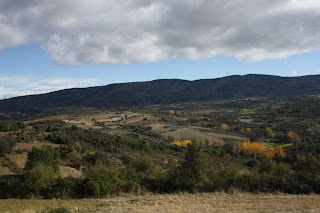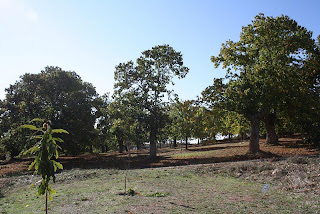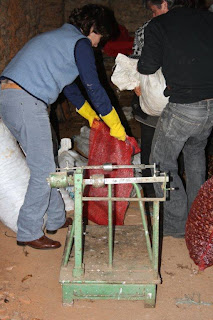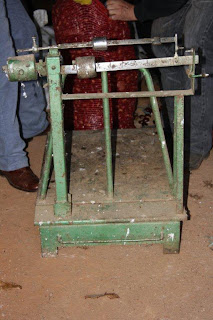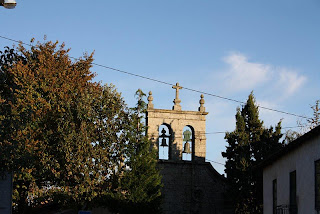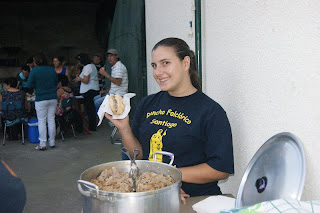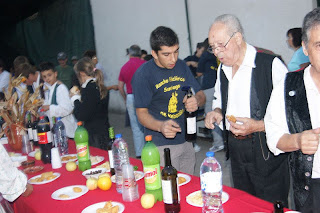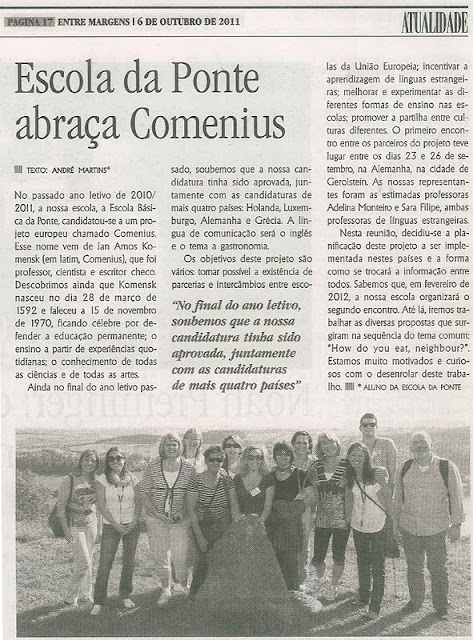Macedo de Cavaleiros is a rural place located in the
north of Portugal. This region has a significant production of chestnuts. The
harvest time has begun and farmers work hard to collect this fruit. It is
indeed a difficult task, since they stand in the same position for hours. It is
normal to have communitarian fields, this meaning that in the same field there
are different trees which belong to different owners. Each tree has a sign that
identifies its owner and he is the only one who can collect the chestnuts that
fall from his tree. As you can see by the photos, the sights are beautiful and
peaceful.
Macedo de Cavaleiros é uma região rural localizada no norte de Portugal, a qual tem uma significativa produção de castanhas. A época das colheitas começou e os agricultores trabalham arduamente para colher este fruto. De facto, é uma tarefa difícil, uma vez que estes ficam na mesma posição durante horas. É habitual existirem campos cujas árvores pertencem a diferentes donos. Cada castanheiro apresenta um símbolo que identifica o respetivo dono e apenas este poderá colher as castanhas que caem das suas árvores. Como se pode ver pelas fotos, as paisagens são lindíssimas e apaziguadoras.
Macedo de Cavaleiros é uma região rural localizada no norte de Portugal, a qual tem uma significativa produção de castanhas. A época das colheitas começou e os agricultores trabalham arduamente para colher este fruto. De facto, é uma tarefa difícil, uma vez que estes ficam na mesma posição durante horas. É habitual existirem campos cujas árvores pertencem a diferentes donos. Cada castanheiro apresenta um símbolo que identifica o respetivo dono e apenas este poderá colher as castanhas que caem das suas árvores. Como se pode ver pelas fotos, as paisagens são lindíssimas e apaziguadoras.
(Click the images no enlarge - Click em qualquer uma das imagens para a aumentar)

